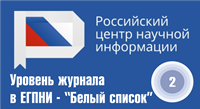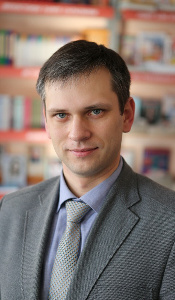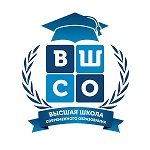ГОТОВНОСТЬ ПРЕПОДАВАТЕЛЯ ВУЗА К ЦИФРОВОЙ ТРАНСФОРМАЦИИ ОБРАЗОВАТЕЛЬНОГО ПРОЦЕССА
Аннотация
Обоснование. Успешная профессиональная деятельность преподавателя вуза невозможна без продуктивного и инновационного использования информационно-коммуникационных технологий. Этот процесс предполагает не только постоянное широкое распространение знаний и информации, их трансформацию в цифровые образовательные продукты, но и наличие у преподавателя способности и готовности эффективно организовывать образовательный процесс в новых условиях.
Цель статьи – определить готовность преподавателей вуза использовать цифровые инструменты и технологии в своей профессиональной деятельности.
Материалы и методы исследования. В рамках исследуемой проблемы изучались публикации иностранных и отечественных авторов, проводился сбор информации по теме исследования из книг, журналов, интернет-изданий. Основу исследования составили наблюдение, опросы и анкетирование преподавателей с использованием структурированной анкеты с закрытыми и открытыми вопросами.
Результаты. Готовность преподавателей вуза к работе в цифровой образовательной среде сформирована не в полной мере. Это объясняется как недостаточным развитием цифровой образовательной среды вуза, так и недостаточным уровнем владения преподавателями цифровыми компетенциями. Только 55% преподавателей оценили свой уровень владения информационно-коммуникационными технологиями как “хороший”, а 10% продемонстрировали отличные навыки. Среди факторов, препятствующих цифровизации процесса преподавания, были отмечены в первую очередь: отсутствие стимулов и оснащения в университете, вред здоровью и большая утомляемость при работе за компьютером.
Скачивания
Литература
Список литературы
Аймалетдинов Т.А., Баймуратова Л.Р., Зайцева О.А., Имаева Г.Р., Спиридонова Л.В. Цифровая грамотность российских педагогов. Готовность к использованию цифровых технологий в учебном процессе. Москва: Издательство НАФИ. 2019. 84 с. URL: https://d-russia.ru/wp-content/uploads/2019/10/digit-ped.pdf
Аналитический отчет: Цифровая трансформация в России 2018 (электронная книга) URL: https://www.interface.ru/home.asp?artId=39873
Андрюхина Л.М., Ломовцева Н.В., Садовникова Н.О., Коновалов А.А. Готовность педагогов профессионального образования к работе в условиях цифровой образовательной среды // Современные проблемы науки и образования. 2021. № 2. URL: https://science-education.ru/ru/article/view?id=30563
Бурганова Л.А., Юрьева О.В. Готовность вузовских преподавателей к работе в цифровой образовательной среде: компетентностный подход // Вестник экономики, права и социологии. 2021. № 2. С. 67-72. URL: https://www.vestnykeps.ru/0221/15.pdf
Галиханов М. Ф., Хасанова Г. Ф. Подготовка преподавателей к онлайн-обучению: роли, компетенции, содержание // Высшее образование в России. 2019. № 28(2). С. 51-62. https://doi.org/10.31992/0869-3617-2019-28-2-51-62
Громова Т.В. Цифровая трансформация высшего образования: компоненты и условия функционирования (на примере Самарского государственного экономического университета) // Инновации. 2023. № 2 (292). С. 66-73.
Донина И.А., Воднева С.Н., Смирнова Е.А. О применении дистанционных технологий в образовательном процессе вуза // Проблемы современного педагогического образования. 2020. № 6(2). С. 61-64.
Зеер Э.Ф., Ломовцева Н.В., Третьякова В.С. Готовность преподавателей вузов к онлайн-образованию: цифровая компетентность, опыт исследования // Педагогическое образование в России. 2020. № 3. С. 26-39. https://doi.org/10.26170/po20-03-03
Паспорт стратегии Цифровой трансформации образования: утв. Министерством просвещения РФ 15 июля 2021 г. URL: https://docs.edu.gov.ru/document/267a55edc9394c4fd7db31026f68f2dd
Современная цифровая образовательная среда в Российской Федерации: Постановление Правительства РФ от 16 ноября 2020 г. № 1836 «О государственной информационной системе». URL: https://www.garant.ru/products/ipo/prime/doc/74822854/
Стратегия развития информационного общества в Российской Федерации на 2017-2030 годы: утв. указом Президента Российской Федерации от 9 мая 2017 г. N 203. URL: https://xn--h1apes.xn--p1ai/storage/uploads/2022/11/28/6384c39e5cd0e----9--2017--N-203-----.pdf
Aguayo C., Cochrane T., Narayan V. Key themes in mobile learning: Prospects for learner-generated learning through AR and VR // Australasian Journal of Educational Technology. 2017. No. 33(6). https://doi.org/10.14742/ajet.3671
Anh T., Nguyen H., Linh N. Digital transformation: a digital learning case study // Proceedings of the 2019 World Symposium on Software Engineering. Wuhan. 2019. P. 119-124. https://doi.org/10.1145/3362125.3362135
Ayantaş T., Hallaç S. Are Teachers Ready for Digital Transformation in Education?: Digital Transformation in Textbooks and Teachers' Opinions. https://www.igi-global.com/chapter/are-teachers-ready-for-digital-transformation-in-education/330883
Heritage M. Getting the Emphasis Right: Formative Assessment through Professional Learning // Educational Assessment. 2020. No. 25(4). P. 355-358. https://doi.org/10.1080/10627197.2020.1766959
Kuzhanova N., Klets T. Methodological and psychological aspects of education for sustainable development in Russia with regard to international cooperation // Environment. Technology. Resources. Proceedings of the 11th International Scientific and Practical Conference. Rezekne. 2017. No. 1. P. 165-168. https://doi.org/10.17770/etr2017vol1.2559
Liu D., Huang R., Wosinski M. Smart learning in digital campus // Smart Learning in Smart Cities. Lecture Notes in Educational Technology. Springer Link, Singapore. 2017. P. 51-60. https://doi.org/10.1007/978-981-10-4343-7_4
Thompson T. Digital doings: curating work learning practices and ecologies // Learning, Media and Technology. 2016. No. 41(3). P. 480-500. https//doi.org/10.1080/17439884.2015.1064957
Volungeviciene A., Tereseviciené M., Daukšiené E., Trepule E., Ehlers U. Learning spaces and places of digital and networked society // (ICALT). Maceió, Brazil. 2019. P. 29-33. https://doi.org/10.1109/ICALT.2019.00012
Zhеstkova E., Fomina N. Electronic information and educational environment of the university as a means of organizing independent work of students. Environment. Technology. Resources // Proceedings of the 12th International Scientific and Practical Conference. 2019. No. 2. P. 247-252. https://dx.doi.org/10.17770/etr2019vol2.4091
Zhuang R., Yang J., Li B., Zhang Y., Huang R. The framework of digital learning capacity for digital natives// IEEE 16th International Conference on Advanced Learning Technologies (ICALT). Enshi, Hubei,China, 2024. P. 386-390. https://doi.org/10.1109/ICALT.2016.130
Zitter L. Digital Transformation of Higher Education in 2024. 2022. https://whatfix.com/blog/digital-transformation-in-higher-education/
References
Aimaletdinov T.A., Baymuratova L.R., Zaitseva O.A., Imaeva G.R., Spiridonova L.V. Digital literacy of Russian teachers. Readiness to use digital technologies in the educational process. Moscow: NAFI Publ., 2019, 84 p. URL: https://d-russia.ru/wp-content/uploads/2019/10/digit-ped.pdf
Analytical report: Digital Transformation in Russia 2018 (e-book). URL: https://www.interface.ru/home.asp?artId=39873
Andriukhina L.M., Lomovtseva N.V., Sadovnikova N.O., Konovalov A.A. Readiness of teachers of professional education to work in a digital educational environment. Sovremennye problemy nauki i obrazovaniya [Modern problems of science and education], 2021, no. 2. URL: https://science-education.ru/ru/article/view?id=30563
Burganova L.A., Yuryeva O.V. Readiness of university teachers to work in a digital educational environment: a competence-based approach. Vestnik ekonomiki, prava i sociologii [Bulletin of Economics, Law and Sociology], 2021, no. 2, pp. 67-72. URL: https://www.vestnykeps.ru/0221/15.pdf
Galikhanov M.F., Khasanova G.F. Teacher training for online learning: roles, competencies, content. Vysshee obrazovanie v Rossii [Higher education in Russia], 2019, no. 28(2), pp. 51-62. https://doi.org/10.31992/0869-3617-2019-28-2-51-62
Gromova T.V. Digital transformation of higher education: components and conditions of functioning (on the example of Samara State University of Economics). Innovacii [Innovations], 2023, no. 2 (292), pp. 66-73.
Donina I.A., Vodneva S.N., Smirnova E.A. On the application of distance learning technologies in the educational process of the university. Problemy sovremennogo pedagogicheskogo obrazovaniya [Problems of modern pedagogical education], 2020, no. 6(2), pp. 61-64.
Zeer E.F., Lomovtseva N.V., Tretyakova V.S. Readiness of university teachers for online education: digital competence, research experience. Pedagogicheskoe obrazovanie v Rossii [Pedagogical education in Russia], 2020, no. 3, pp. 26-39. https://doi.org/10.26170/po20-03-03
Passport of the Digital Transformation strategy of Education / approved by the Ministry of Education of the Russian Federation on July 15, 2021. URL: https://docs.edu.gov.ru/document/267a55edc9394c4fd7db31026f68f2dd
Modern digital educational environment in the Russian Federation. Resolution of the Government of the Russian Federation dated November 16, 2020, no. 1836 "On the State Information System". URL: https://www.garant.ru/products/ipo/prime/doc/74822854/
Strategy for the development of the information society in the Russian Federation for 2017-2030: approved by the decree of the President of the Russian Federation dated May 9, 2017, no. 203. URL: https://xn--h1apes.xn--p1ai/storage/uploads/2022/11/28/6384c39e5cd0e----9--2017--N-203-----.pdf
Aguayo C., Cochrane T., Narayan V. Key themes in mobile learning: Prospects for learner-generated learning through AR and VR. Australasian Journal of Educational Technology, 2017, no. 33(6). https://doi.org/10.14742/ajet.3671
Anh T., Nguyen H., Linh N. Digital transformation: a digital learning case study. Proceedings of the 2019. The World Symposium on Software Engineering. Wuhan, 2019, pp. 119-124. https://doi.org/10.1145/3362125.3362135
Ayantaş T., Hallaç S. Are Teachers Ready for Digital Transformation in Education?: Digital Transformation in Textbooks and Teachers' Opinions. https://www.igi-global.com/chapter/are-teachers-ready-for-digital-transformation-in-education/330883
Heritage M. Getting the Emphasis Right: Formative Assessment through Professional Learning. Educational Assessment, 2020, no. 25(4), pp. 355-358. https://doi.org/10.1080/10627197.2020.1766959
Kuzhanova N., Klets T. Methodological and psychological aspects of education for sustainable development in Russia with regard to international cooperation. Environment. Technology. Resources. Proceedings of the 11th International Scientific and Practical Conference, Rezekne, 2017, no. 1, pp. 165-168. https://doi.org/10.17770/etr2017vol1.2559
Liu D., Huang R., Wosinski M. Smart learning in digital campus. Smart Learning in Smart Cities. Lecture Notes in Educational Technology. Springer Link, Singapore, 2017, pp. 51-60. https://doi.org/10.1007/978-981-10-4343-7_4
Thompson, T. Digital doings: curating work learning practices and ecologies. Learning, Media and Technology, 2016, no. 41(3), pp. 480-500. https//doi.org/10.1080/17439884.2015.1064957
Volungeviciene, A., Tereseviciené, M., Daukšiené, E., Trepule, E., & Ehlers, U. Learning spaces and places of digital and networked society. IEEE 19th International Conference on Advanced Learning Technologies (ICALT), Maceió, Brazil, 2019, pp. 29-33. https://doi.org/10.1109/ICALT.2019.00012
Zhеstkova E., Fomina N. Electronic information and educational environment of the university as a means of organizing independent work of students. Environment. Technology. Resources. Proceedings of the 12th International Scientific and Practical Conference, 2019, no. 2, pp. 247-252. https://dx.doi.org/10.17770/etr2019vol2.4091
Zhuang R., Yang J., Li B., Zhang Y., Huang, R. The framework of digital learning capacity for digital natives. IEEE 16th International Conference on Advanced Learning Technologies (ICALT), Enshi, Hubei, China, 2024, pp. 386-390. https://doi.org/10.1109/ICALT.2016.130
Zitter L. Digital Transformation of Higher Education in 2024, 2022, https://whatfix.com/blog/digital-transformation-in-higher-education/
Просмотров аннотации: 353
Copyright (c) 2024 Tatiana V. Gromova

Это произведение доступно по лицензии Creative Commons «Attribution-NonCommercial-NoDerivatives» («Атрибуция — Некоммерческое использование — Без производных произведений») 4.0 Всемирная.





































